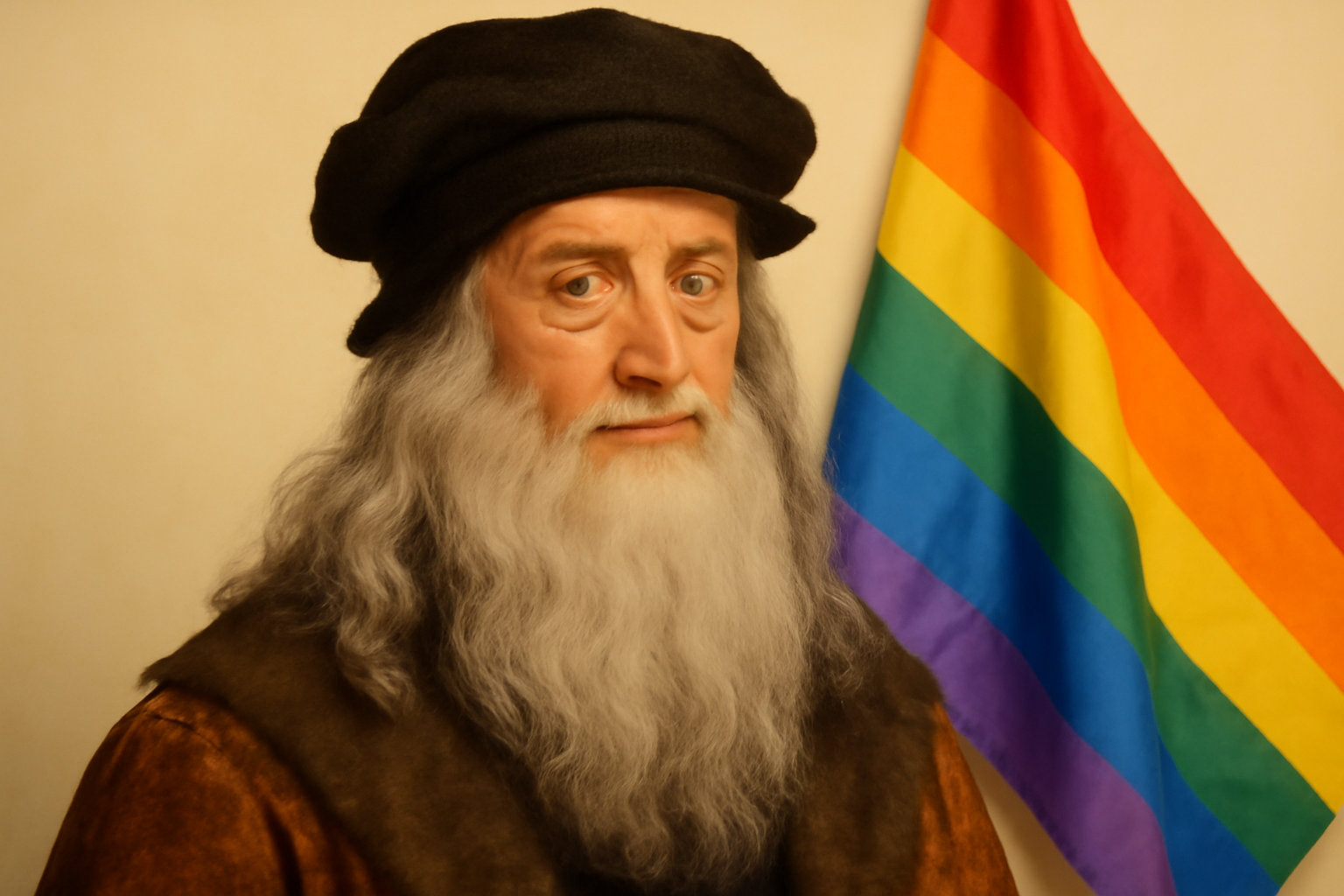
Each year, LGBTQ+ History Month provides an opportunity to celebrate the rich tapestry of queer culture and the countless contributions of LGBTQ+ individuals throughout history. Despite the challenges faced by LGBTQ+ individuals in the past, historians have unearthed fascinating insights about the lives of several prominent figures whose sexualities were often hidden or overlooked. Here are nine historical figures who may surprise you with their LGBTQ+ identities.
Leonardo da Vinci
Leonardo da Vinci, the quintessential Renaissance man known for his paintings, inventions, and scientific inquiries, is also recognized as having lived as an openly gay man in 15th-century Florence. Walter Isaacson's biography of da Vinci reveals the artist's relationships with younger male companions and his exploration of male sexuality through his work. Despite facing accusations of sodomy, da Vinci's reflections and art testify to his attraction to men.
Florence Nightingale
Florence Nightingale, celebrated as the founder of modern nursing, also had passionate relationships with women. As highlighted in the book "Superstars: Twelve Lesbians Who Changed the World," Nightingale's love for her cousin Marianna Nicholson led her to assume a male identity to evade societal judgment. This side of Nightingale's life adds depth to her legacy as a pioneering nurse and compassionate human being.
King James VI and I
King James VI and I, the monarch who commissioned the King James Bible, is widely believed to have engaged in same-sex relationships. Notably, James bestowed titles upon his lovers, such as Robert Carr, whom he made the Earl of Somerset, and George Villiers, whom he elevated to the Duke of Buckingham. The affectionate correspondence between James and Villiers provides compelling evidence of their intimate relationship.
Selma Lagerlöf
Selma Lagerlöf, the first female Nobel Prize winner in Literature, shared a profound bond with fellow writer Sophie Elkan. Their relationship, documented through hundreds of letters, began in 1894 and continued until Elkan's death in 1921. Lagerlöf's heartfelt letters express a deep emotional connection and gratitude for their time together, enriching our understanding of her life and work.
William Shakespeare
The sexuality of William Shakespeare has long intrigued scholars and audiences alike. Esteemed actor Sir Ian McKellen and other experts have suggested that Shakespeare engaged in relationships with men. His sonnets, many of which are addressed to a male subject, suggest personal experiences with same-sex love, challenging traditional perceptions of the Bard's private life.
Roberta Cowell
Roberta Cowell, a pioneering figure in transgender history, was a World War II fighter pilot who later became one of the first individuals to receive gender confirmation surgery. Her courage and determination in the face of adversity paved the way for future generations of transgender individuals, illustrating the resilience and tenacity of the LGBTQ+ community.
Richard I
King Richard I, known as the Lionheart, was rumored to have had a passionate affair with Philip II of France. Historical accounts describe their close companionship and shared affection, leading contemporaries to speculate about the nature of their relationship. The bond between Richard and Philip offers a glimpse into the complexities of medieval royal friendships.
Caroline Spurgeon
Caroline Spurgeon, a groundbreaking academic, was the first female professor at the University of London. Her lifelong partnership with Lilian Clapham is commemorated by their joint gravestone, which Spurgeon designed. Their shared life and work highlight the contributions of women in academia and the enduring impact of their companionship.
Julius Caesar
Roman leader Julius Caesar, often celebrated for his military prowess and political acumen, also faced rumors about his relationships with men. His alleged affair with King Nicomedes IV of Bithynia and subsequent taunting by political adversaries reveal the enduring presence of homophobic rhetoric throughout history. Caesar's legacy, however, transcends these personal anecdotes, reflecting the complexity of his character.
These historical figures remind us that LGBTQ+ identities have always been part of the human experience, enriching our understanding of history and the individuals who shaped it. By acknowledging their stories, we celebrate the diversity and resilience of the LGBTQ+ community across time.
Related Posts
Triumphant Trans Woman Wins Legal Battle and Inspires Others to Stand Up for Their Rights
Breaking new ground: a landmark victory in transgender rights After battling in courtrooms and enduring endless challenges, Diana Portillo, a transgender woman, has secured a monumental victory in her decade-long fight against workplace discrimination. The result? Nearly $1 million awarded in a historic settlement. But this isn't just a win on paper—it represents a powerful precedent in combati [...]
Pride Month in Latin America: Protests and Demands for Equality
**Celebrating Pride and advocating LGBTQ+ rights in Latin America** Pride Month in Latin America was a lively mix where celebration met activism. Communities united, not just throwing a party but making a stand—demanding equality and pushing governments toward better protection and rights recognition. Throughout Latin America, pride events erupted in marches and cultural displays, each with a c [...]
Transgender Erasure Actions Implemented by National Park Service
```html Trump administration's impact on national park service and transgender recognition The Trump administration made notable moves in undermining transgender representation, which included directing agencies like National Park Service not include "T" and "Q" when they refered “LGBTQ” in any official communication. This move seems part a broader plan by this administration aimed at reducin [...]